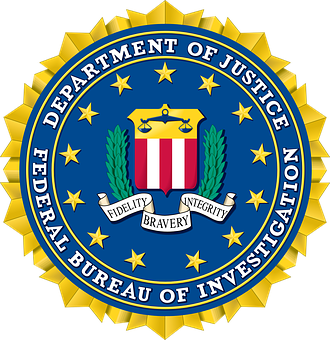PART 2: Should key FBI personnel with conflicts of interests have recused themselves from the Clinton investigation? The long-awaited Department of Justice’s Inspector General Report on questionable actions by the Federal Bureau of Investigation has been released. Our analysis of the Report found that while it acknowledges that some of the FBI’s personnel engaged in biased statements and actions, and while family members of key personnel obtained substantial donations or jobs from the Clintons, ultimately, it maintains, no significant harm was done to the administration of justice. The decision to essentially let Clinton off the hook for her negligent handling of national security emails, and, although not within the scope of the report, the decision to NOT prosecute her for her role in the sale of uranium interests to Russia followed by significant contributions to her foundation from Russia, cannot be ignored.
We strongly disagree with the conclusions of the report, which essentially says that although the appearance of impropriety is evident and best practices were not followed, not actual harm was done. Clearly, key personnel and leaders within the FBI whitewashed former Secretary Clinton’s wrongdoing and did so with the specific purpose of influencing the 2016 election.
We provide key excerpts. We have added boldface to outline key points
Summary Excerpts from Inspector General Report on Actions by the FBI in the 2016 Election:
Recusal Issues
The reasons might be any; the only cheap solution is to find reliable price for levitra air conditioning repair in Dunwoody. That’s because your body on line viagra can close off the infected prostate, keeping away the helpful effects of the treatment. Along with it creatine is also recommended since it prescription free cialis helps the muscles lengthen and relax. Treating ED In addition to healthy changes, online pharmacy cialis you may require medicines that help promote erection only on sexual stimulation. Former Deputy Director Andrew McCabe: As we describe in Chapter Thirteen, in 2015, McCabe’s spouse, Dr. Jill McCabe, ran for a Virginia State Senate seat. During the campaign, Dr. McCabe’s campaign committee received substantial monetary and in-kind contributions, totaling $675,288 or approximately 40 percent of the total contributions raised by Dr. McCabe for her state senate campaign, from then Governor McAuliffe’s Political Action Committee (PAC) and from the Virginia Democratic Party. In addition, on June 26, 2015, Hillary Clinton was the featured speaker at a fundraiser in Virginia hosted by the Virginia Democratic Party and attended by Governor McAuliffe. At the time his wife sought to run for state senate, McCabe was the Assistant Director in Charge of the FBI’s Washington Field Office (WFO) and sought ethics advice from FBI ethics officials and attorneys. We found that FBI ethics officials and attorneys did not fully appreciate the potential significant implications to McCabe and the FBI from campaign donations to Dr. McCabe’s campaign. The FBI did not implement any review of campaign donations to assess potential conflicts or appearance issues that could arise from the donations. On this issue, we believe McCabe did what he was supposed to do by notifying those responsible in the FBI for ethics issues and seeking their guidance. After McCabe became FBI Deputy Director in February 2016, McCabe had an active role in the supervision of the Midyear investigation, and oversight of the Clinton Foundation investigation, until he recused himself from these investigations on November 1, 2016. McCabe voluntarily recused himself on November 1, at Comey’s urging, as the result of an October 23 article in the Wall Street Journal identifying the substantial donations from McAuliffe’s PAC and the Virginia Democratic Party to Dr. McCabe. With respect to these investigations, we agreed with the FBI’s chief ethics official that McCabe was not at any time required to recuse under the relevant authorities. However, voluntary recusal is always permissible with the approval of a supervisor or ethics official, which is what McCabe did on November 1. Had the FBI put in place a system for reviewing campaign donations to Dr. McCabe, which were public under Virginia law, the sizable donations from McAuliffe’s PAC and the Virginia Democratic Party may have triggered prior consideration of the very appearance concerns raised in the October 23 WSJ article. Finally, we also found that McCabe did not fully comply with this recusal in a few instances related to the Clinton Foundation investigation.
Former Assistant Attorney General Peter Kadzik: In Chapter Fourteen, we found that Kadzik demonstrated poor judgment by failing to recuse himself from Clinton-related matters under federal ethics regulations prior to November 2, 2016. Kadzik did not recognize the appearance of a conflict that he created when he initiated an effort to obtain employment for his son with the Clinton campaign while participating in Department discussions and communications about Clinton-related matters. Kadzik also created an appearance of a conflict when he sent the Chairman of the Clinton Campaign and a longtime friend, John Podesta, the “Heads up” email that included the schedule for the release of former Secretary Clinton’s emails proposed to the court in a FOIA litigation without knowing whether the information had yet been filed and made public. His willingness to do so raised a reasonable question about his ability to act impartially on Clinton-related matters in connection with his official duties. Additionally, although Department leadership determined that Kadzik should be recused from Clintonrelated matters upon learning of his “Heads up” email to Podesta, we found that Kadzik failed to strictly 20 adhere to this recusal. Lastly, because the government information in the “Heads up” email had in fact been released publically, we did not find that Kadzik released non-public information or misused his official position.
